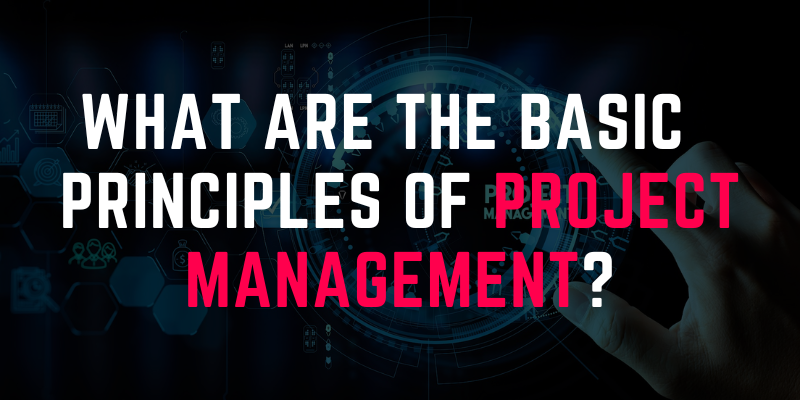
Project management is a multifaceted activity with numerous facets. Depending on the kind and class of the project, this management activity can be quite complex. The project management discipline is organizing, planning, managing, securing, controlling resources to achieve specific goals, and leading. Join FITA Academy‘s PMP Training in Hyderabad which offers advanced certification training and job placement assistance. This blog post will go over some of the Basic Principles of Project Management.
What Is Project Management?
A designed to produce a unique with a defined beginning and end ( often constrained by funding, usually time-constrained or deliverables) that an organization undertakes to meet specific objectives and goals, typically to bring about beneficial change or add value.
The primary challenge of project management is achieving all project goals and objectives while adhering to predefined constraints. Quality, time, Scope, and budget are the main constraints. The secondary (and more ambitious) challenge is to optimize the allocation and integration of required inputs to meet predefined goals.
When marking a path to completion for a good project, the following project management principles are essential assets. These project management principles (PMP) apply to any level or branch of a project overseen by a different department within the overall project organization:
- Project structure
- Definition phase
- Clear goals
- Transparency about project status
- Risk recognition
- Managing project disturbances
- Responsibility of the project manager
- Project success
Project Structure
The 3 most essential parameters in project management are resources, quality, and Correct period. Typically, project structures can be effectively built by considering the following factors.
Project Goal
When developing a project objective, a solution to the question “What should be done?” is a good place to start. This question’s answer leads to the project master plan.
Project Timeline and Order
A flowchart is an effective tool for visualizing the start, finish, and order of project tasks in a single graph. Enroll in the PMP Course in Mumbai, Which will help you understand more Concepts about PMP Features.
Project Milestones
Milestones establish specific stages of your project and the costs and outcomes associated with them. Successes are significant steps in the development of a project.
Definition Phase
During the definition phase, many projects fail. This can happen when there isn’t a clear idea of when the definition becomes hazy as a result of too many stakeholders being involved. An effective definition must include the entire team at every step to enhance commitment and acceptance of the project.
Clear Goals
The project manager is in charge of ensuring that all project goals are met. These objectives should always be defined using the SMART framework. When the goals are hazy, a project manager may be expected to face the daily struggle of keeping everything organized. You will benefit greatly from clearly defining goals prior to the start of the project.
Transparency About the Project Status
Your structure plan, flowcharts, and progress plan will all help you stay on track. As a Project Manager (PM), you must be able to give a brief progress update to your principal or stakeholders at each stage of the project. At such meetings, you should be able to provide overviews of the expenses, timeline, and achieved milestones.
Risk Recognition
The project manager is responsible for conducting regular risk assessments. Each proposal should be decided to approach with the knowledge that it contains a number of risks. This is quite common. Keep in mind that each project is different, with specific budgets, appointments, and performance goals. The Sooner identify these threats, the sooner they react to negative developments.
Enroll in the Best PMP Training Institute in Gurgaon, Which will help you understand more Concepts about Quality to become a PMP.
Managing Project Disturbances
You are unlikely to have enough personal capacity to identify every potential risk. Instead, concentrate on identifying the major risks and developing specific mitigation strategies. Even if you lack a vision, you can use your level of expertise, insight, and instincts quickly respond in and productive way when anything goes wrong.
Responsibility of the Project Manager
The Project Manager works with the team to develop the Project Plan and oversees the team’s completion of tasks. The Project Manager (PM) is also in charge of obtaining the acceptance and approval of deliverables from the Project Sponsor and Stakeholders.
Project Success
Success in a project is a multi-dimensional concept that can mean various things to various individuals. It is better summarized at the beginning of a project in terms of important and measurable criteria that can be used to analyze the project’s relative success or failure.
Conclusion
This blog has discussed the Basic Principles of Project Management. Join the PMP Institute in Delhi, which offers the best certification training with knowledgeable instructors. FITA Academy provides a variety of Project Management training courses and learning paths to assist aspiring project managers in obtaining the education they require—not only to pass exams like the PMP certification but also to gain real-world knowledge applicable to any project management career.
